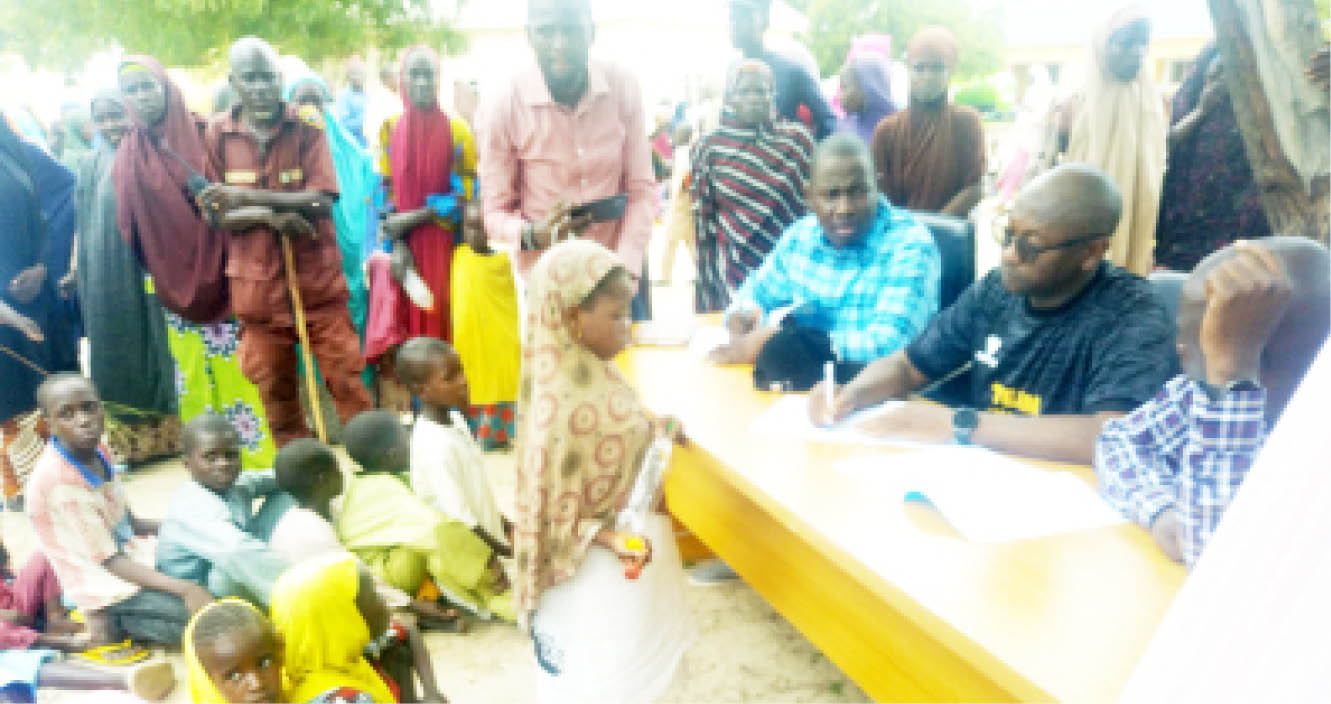Borno struggles to enrol, keep orphans in schools
As children continue to bear the brunt of emergencies, a total of 5,361 orphans in the insurgency-ravaged Borno State have been enrolled into basic schools. The school-age orphans were mostly those whose parents died as a result of insurgency. The enrolment exercise took place in Monguno town, headquarters of Monguno Local Government Area which serves […]

Orphans registered in schools by Borno State officials
As children continue to bear the brunt of emergencies, a total of 5,361 orphans in the insurgency-ravaged Borno State have been enrolled into basic schools.
The school-age orphans were mostly those whose parents died as a result of insurgency.
The enrolment exercise took place in Monguno town, headquarters of Monguno Local Government Area which serves as community for displaced persons from Nganzai, Kukawa, Guzamala and Marte local government areas
Monguno itself was once deserted for two weeks in 2014 before the residents returned.
During the exercise, Governor Babagana Zulum said the kids will be provided with books and uniforms.
The state government is said to have contemplated giving one meal per day to school kids to improve attendance and achievement.
Mustapha Aribe, is blind man living in. Wulo ward, Monguno, who said he was pleased to have enrolled two of his grandsons in primary school whose parents died in the insurgency. He pledged to ensure that the kids attend classes regularly adding that he wants the children to have the best possible start in life.
A 15-year-old Aisha, who accompanies her 5-year-old brother, Modu to the enrolment centre, said they live under the care of a relative after the death of their parents.
A resident, Ibrahim Garzali, said the move by the government to send orphans to schools will reduce the number of out-of-school kids on the streets. He said most of the orphans who lacked parental guidance and care are seen begging on the streets, adding that they will have the opportunity to acquire education with the support of state authorities.
Apart from the menace of out-of-school orphans, he said both residents and displaced persons living in temporary settlements are struggling to make ends meet due to rising food prices and poverty.
He said, “The price of food stuff rises almost on daily basis to the extent one measure of local rice sells for N1,200 while that of maize goes for N750. This has made life difficult for most households who have not cultivated their farms in previous years due to insurgency. Government should not relent in providing food aid to vulnerable families.”
He said the rising prices of commodities coupled with the problems displaced people face, have stimulated food production and eventually more job opportunities.
He said farmers are now allowed grow crops as normalcy “gradually’ returns but parents and guardians whose farms are located in distant areas take longer time to reach there because they are not allowed to move with their cars, motorbikes and bicycles.
He said school attendance is poor in the farming season because children help their parents to work in farms.
He said pupils’ absenteeism may likely affect success and graduation rates.
“Teachers are helpless in this situation because many parents could not afford to hire labourers to work in their farms and there is no minimum work age so, kids as young as 10 years old skip classes to help their parents in their farms. In essence, pupils absenteeism in most cases lead to school redundancies in spite of the fact that government pays teacher salary regularly,” he said.
